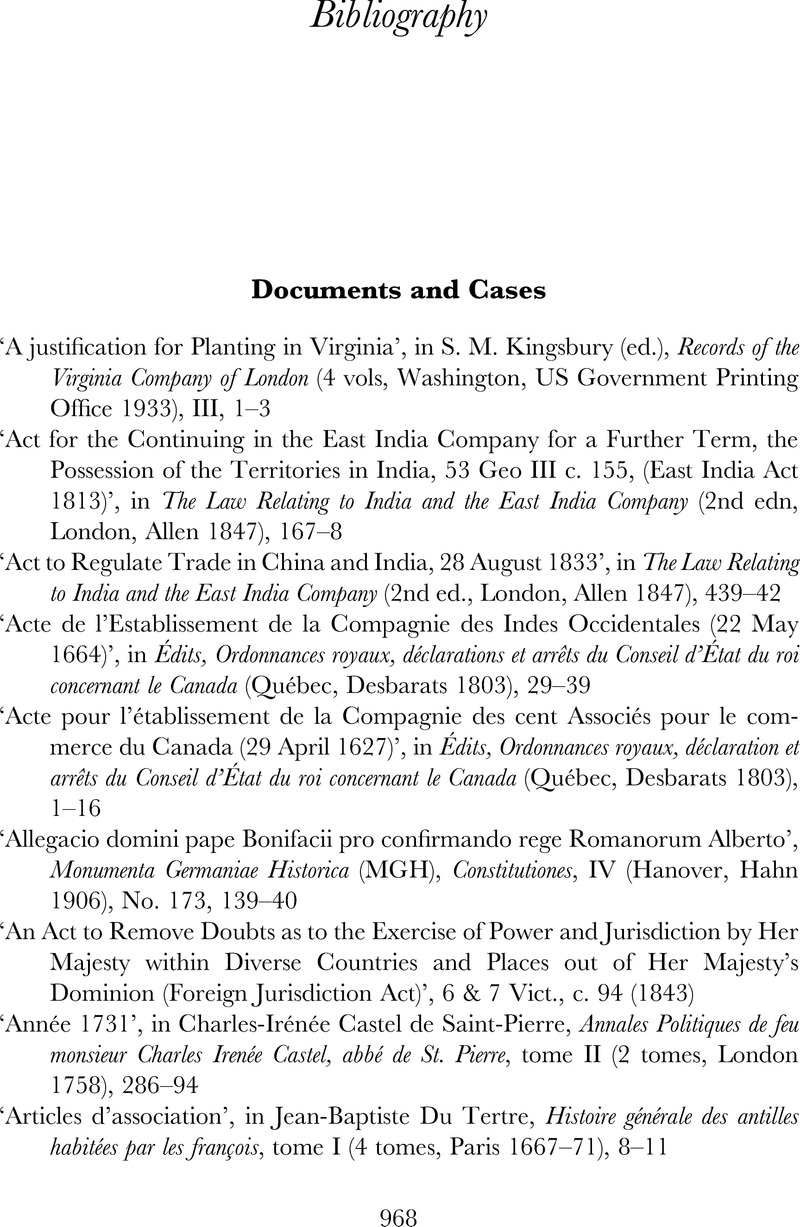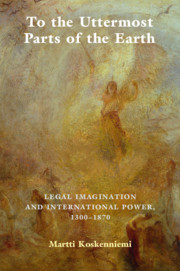Book contents
- To the Uttermost Parts of the Earth
- To the Uttermost Parts of the Earth
- Copyright page
- Dedication
- Contents
- Acknowledgements
- Introduction
- Part I Towards the Rule of Law
- Part II France: Law, Sovereignty and Revolution
- Part III Britain: Laws and Markets
- Part IV Germany: Law, Government, Freedom
- Bibliography
- Index
- References
Bibliography
Published online by Cambridge University Press: 05 August 2021
- To the Uttermost Parts of the Earth
- To the Uttermost Parts of the Earth
- Copyright page
- Dedication
- Contents
- Acknowledgements
- Introduction
- Part I Towards the Rule of Law
- Part II France: Law, Sovereignty and Revolution
- Part III Britain: Laws and Markets
- Part IV Germany: Law, Government, Freedom
- Bibliography
- Index
- References
Summary

- Type
- Chapter
- Information
- To the Uttermost Parts of the EarthLegal Imagination and International Power 1300–1870, pp. 968 - 1069Publisher: Cambridge University PressPrint publication year: 2021

